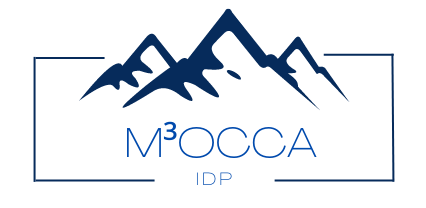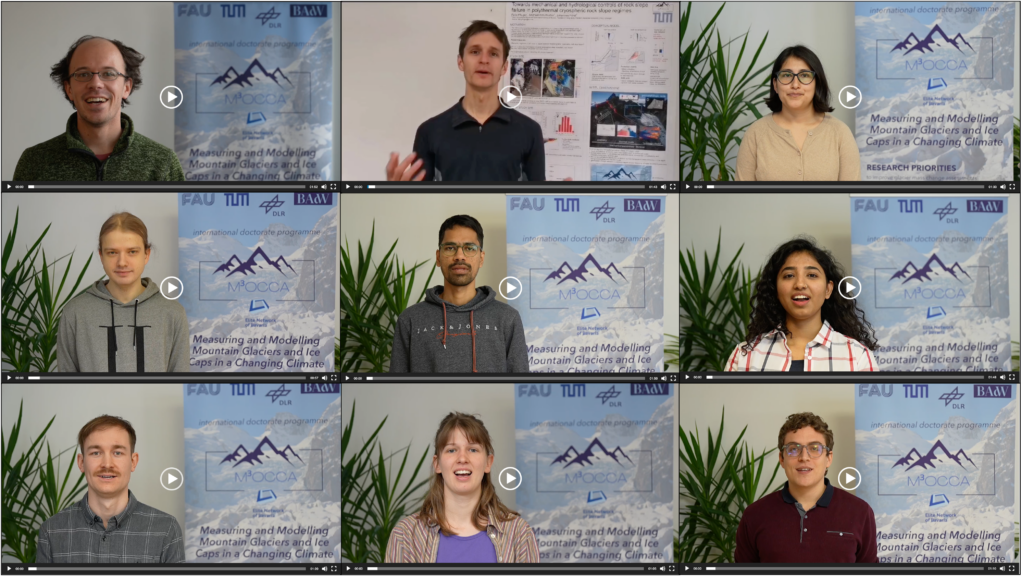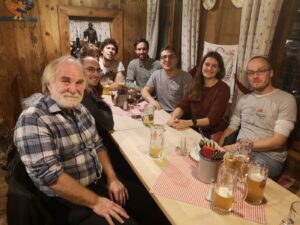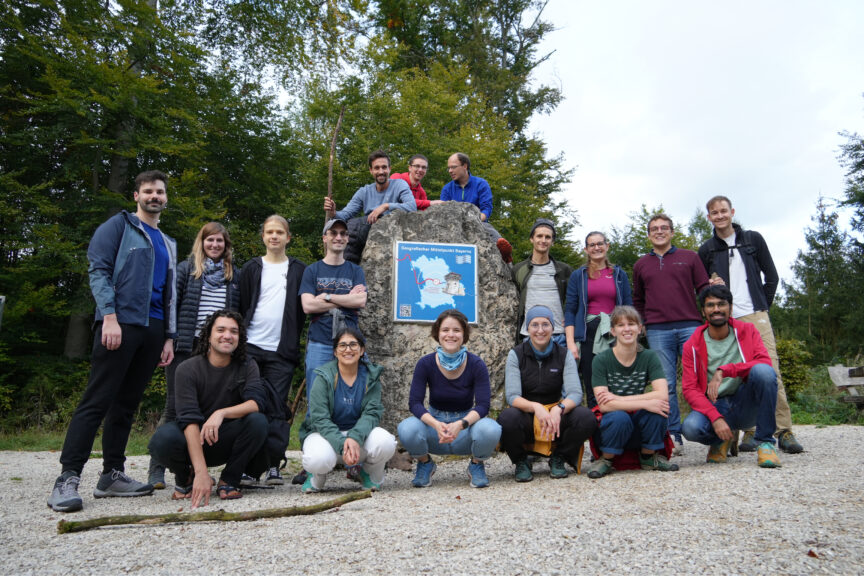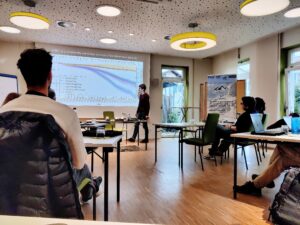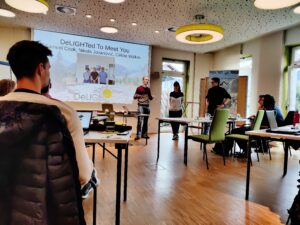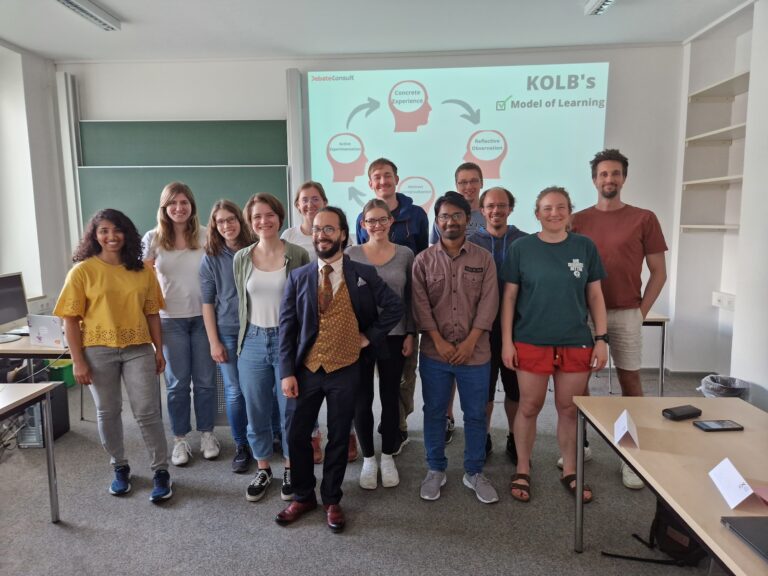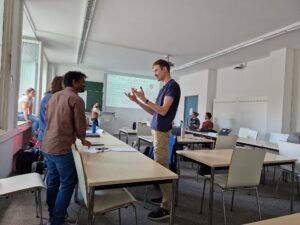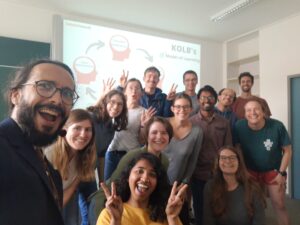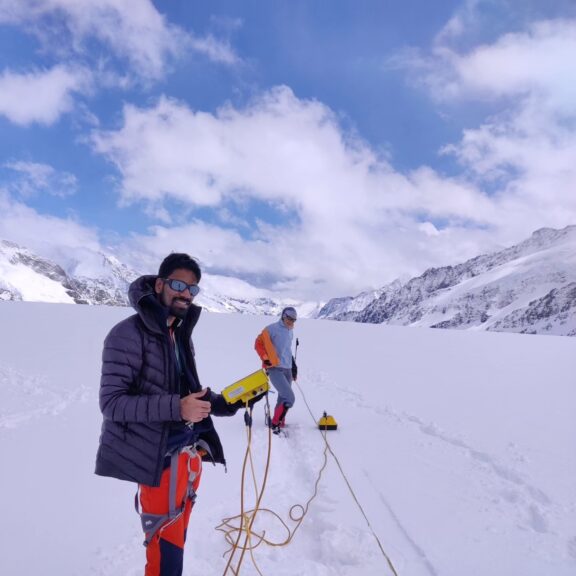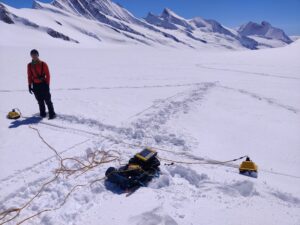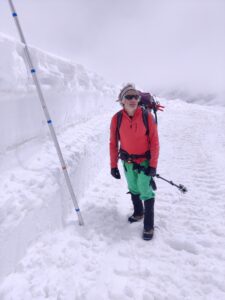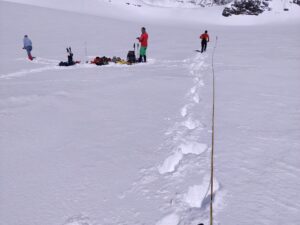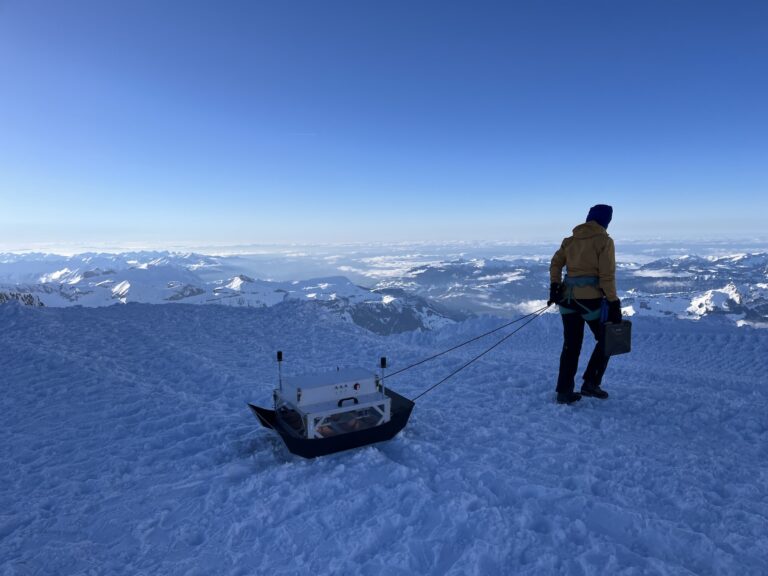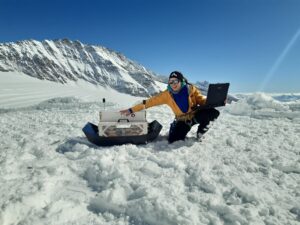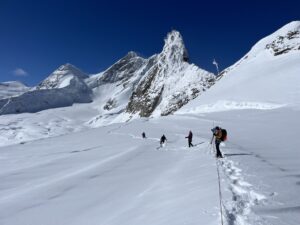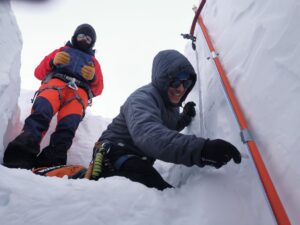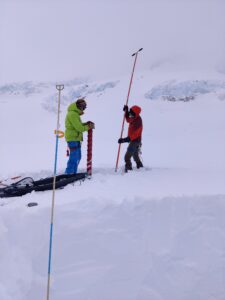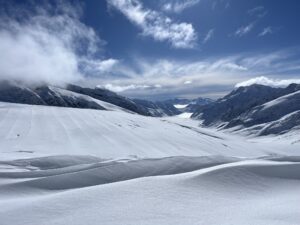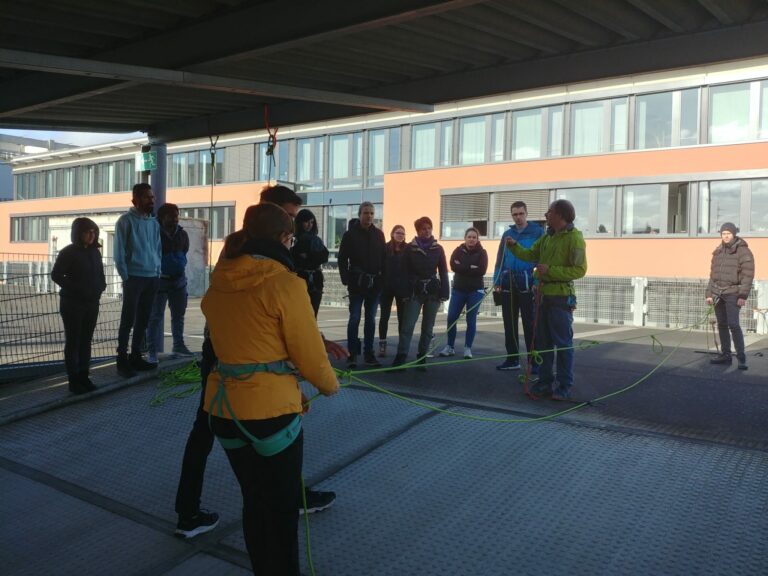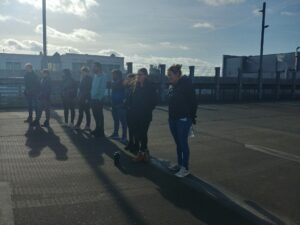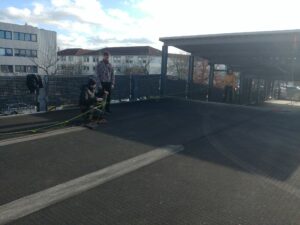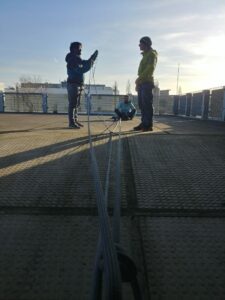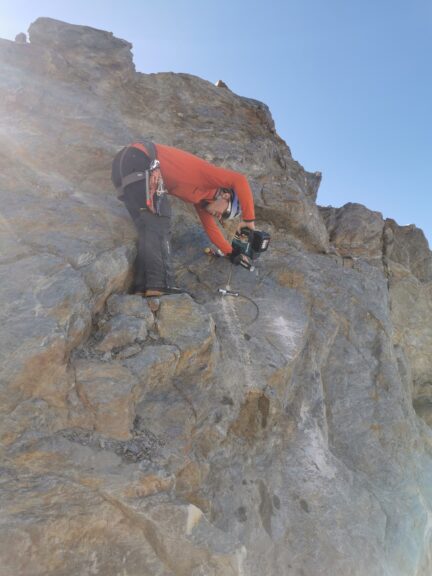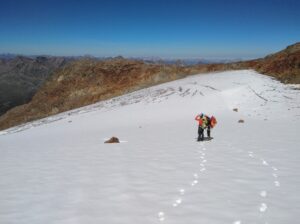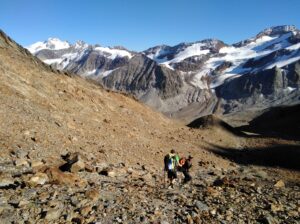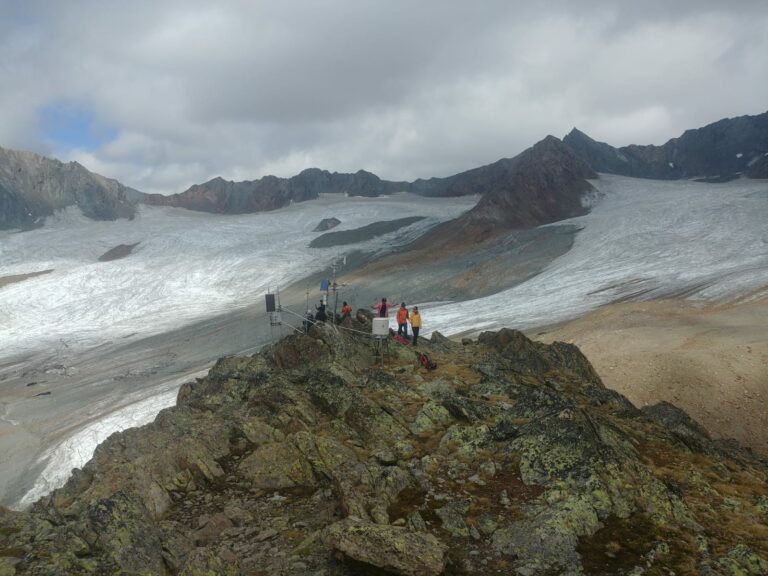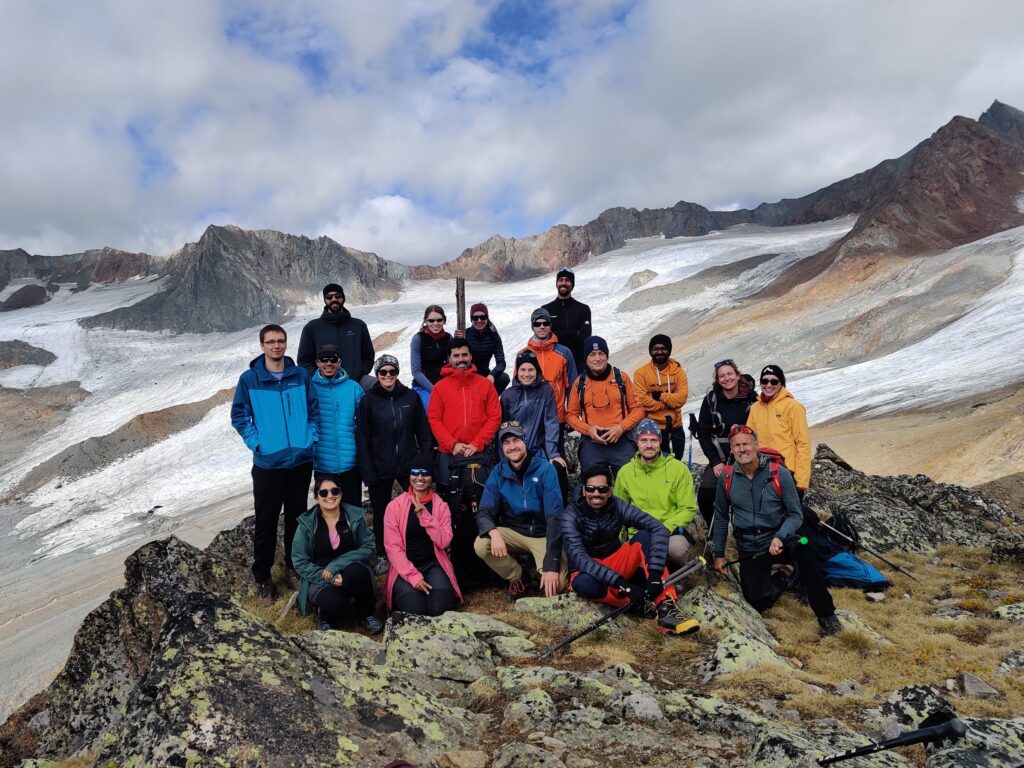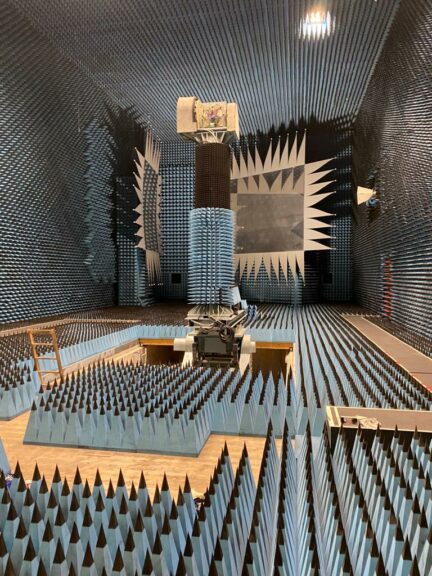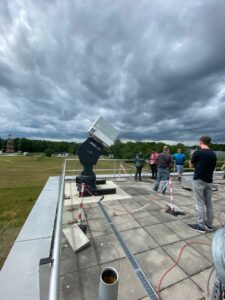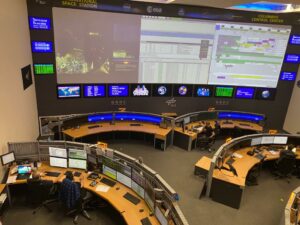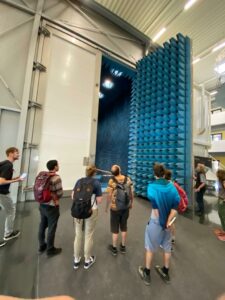At the end of February, a large field campaign with various measurement instruments from different research groups took place at the Aletsch Glacier. The group consisted of scientists and technicians from FAU Erlangen, different DLR institutes (HR, OS, DFD), Technical University Munich, Bavarian Academy of Sciences, the institute for snow and avalanche research (SLF), Ulm University and ETH Zürich. The campaign involved in-situ density and permittivity measurements, surface- and UAV-based ground penetrating radar (GPR) measurements, airborne acquisitions for tomography and SAR applications, bistatic radar measurements with the KAPRI system, and first tests with an optical localization system. The observed test sites were distributed over the glacier, reaching from the Jungfraufirn to the Mönchsjochplateau and further to the Ewigschneefeld. The surface-based GPR platform (top picture) developed in subproject 1.1 by our PhD student Lena Krabbe was tested in rough environmental conditions for the application of subsurface imaging of glacier stratification.
Within subproject 2.3, GPR was used to collect data illustrating the spatial distribution of the firn body. GPR transects across different parts of the accumulation area of the Aletsch Glacier were obtained by our PhD student Akash Patil, along with direct measurements using glaciological methods like snow pits and firn cores at some locations near the GPR transects. Isotope samples were also taken from the snow pit and firn cores to determine possible annual layers and their corresponding depths. This helps in understanding the regional variability of density distribution and glacier-climate interaction on a regional scale to determine and validate density assumptions that aid in estimating the mean glacier mass balance.
Many thanks to Dr. Thorsten Seehaus and Dr. Alexander Gross from the Institute of Geography FAU Erlangen, Michael Stelzig from LHFT, FAU Erlangen, and M3OCCA PhDs Patricia Schlenk (DLR, Munich) and Felix Pfluger (TUM, Munich) for their assistance during this expedition.
